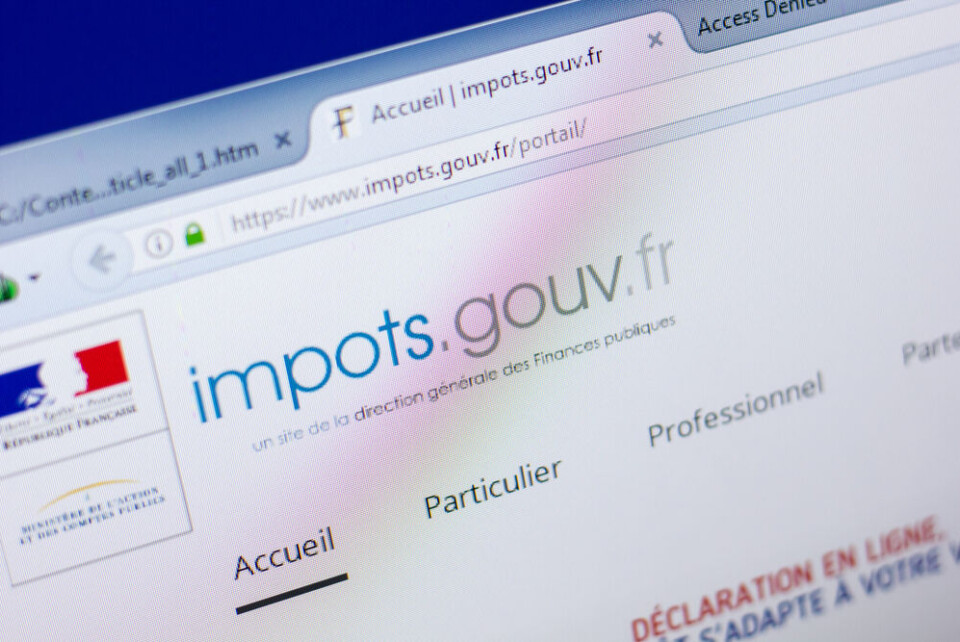-
France finally passes 2026 budget - what it means for residents
Budget has measures to help homeowners and low earners but is more punitive to business and local authorities
-
Can small businesses earn interest on deposits in France?
Accounts in France are dominated by government-regulated products such as the Livret A and its higher-paying counterpart, the Livret d’épargne populaire (LEP)
-
Am I being overcharged on savings in France?
A reader writes about income tax demands on interest
Explainer: who pays France’s CFE business tax and what exemptions?
We look at the rules around this tax, which also applies to self-employed workers

The cotisation foncière des entreprises (CFE) is a local tax on businesses, including micro-entreprises (also known as auto-entrepreneurs). We look at how it works, who has to pay and when.
The CFE is levied by communes on businesses and self-employed people based on their business income or the property value of their registered workplace from their second year of activity .
It is used to help fund communes, local authorities and chambers of commerce.
How does the CFE work?
If you have a business, or are registered as a micro-entreprise (auto-entrepreneur), you must register your activity before January 1 during the first year of its existence on impots.gouv.fr.
Note that neither the social security collection agency Urssaf nor the business registration body INPI will register your activity for you.
If you move your business address, you will need to modify the registration. You can do this here.
Registration is mandatory, however you will have nothing to pay during the first year of activity.
During the second year of activity you will receive a CFE tax bill in November. In 2024, the notices were sent on November 4.
Businesses that have opted for monthly payment received their CFE bill on November 14.
You can pay it in your professional space on impots.gouv.fr.
How is the tax calculated?
The CFE is calculated either using business income from two years prior, or the rental value of the business' registered address.
If paying based on the value of the business address, the CFE takes the valeur locative cadastrale or theoretical rental value of your workplace to determine the tax. This value is also used to calculate the taxe foncière.
The valeur locative cadastrale is then multiplied by the tax rate determined by the commune.
Accordingly, the CFE is in line with taxe foncière - where that tax is higher, so is the CFE.
However, where the theoretical rental value of the business address is lower than the minimum threshold for the commune, the tax is based on a minimum revenue threshold.
This is frequently the case for microentrepreneurs.
You will have nothing to pay if you earn less than €5,000 a year.
If the tax is less than €3,000 you have until midnight on December 16, 2024, to pay. If it is more, you pay 50% by this date and the remaining 50% by June 16 2025.
The first CFE statement uses 50% of the business income from the first year of activity.
The tax thresholds for minimum business income are set nationally, however local authorities can determine how the CFE is applied.
CFE 2024 minimum income thresholds
| Business revenue | CFE tax base (subject to commune) |
| Up to €10,000 | €243 to €579 |
| Up to €32,600 | €243 to €1,158 |
| Up to €100,000 | €243 to €2,433 |
| Up to €250,000 | €243 to €4,056 |
| Up to €500,000 | €243 to €5,793 |
| More than €500,000 | €243 to €7,533 |
This rate can vary significantly based on a number of factors including access to public services and even local politics.
Do I have to pay the CFE if I do not own the workplace?
Yes, even if you work in a co-working space, you must still pay the CFE.
Do I have to pay the CFE if I work from home?
Yes. Even if you already pay taxe foncière on the property you must still pay the CFE.
When is the deadline for the CFE?
If the tax is less than €3,000 you have until midnight on December 16, 2024, to pay. If it is more, you pay 50% by this date and the remaining 50% by June 16 2025.
Who is exonerated from paying the CFE?
You will have nothing to pay if you earn less than €5,000 a year.
In addition, a long list of business categories are exempt from the CFE.
On registering your activity, you will find out if you are exempt. However, the exemptions include:
- Agricultural workers
- Professional drivers who have two or more cars
- Fishermen
- Teaching establishments
- Artists
- Independent bookshops
A full list of exemptions is available here.
Are there any reductions available for the CFE?
- Tradespeople can earn a 25% reduction for each person that they employ, up to a maximum of 3 (75% reduction).
- People in Corsica have a 25% reduction
For more information on the cotisation foncière des entreprises contact your local tax centre or visit impots.gouv.fr.
Alternatively, you can call the tax service on 0809 401 401.
If you are struggling to access your professional space on impots.gouv.fr call the professional space helpline on 0809 400 210.
























